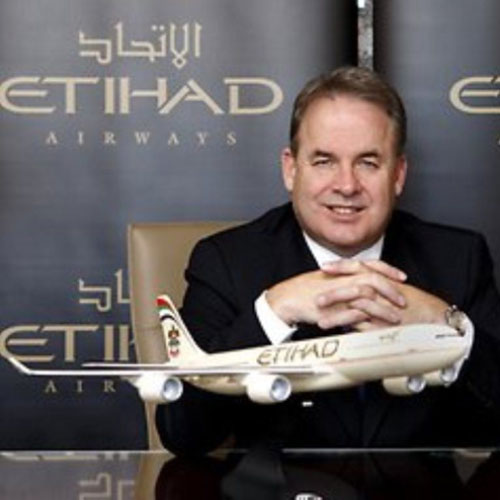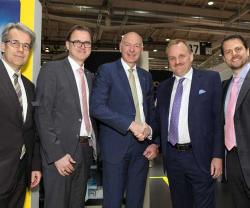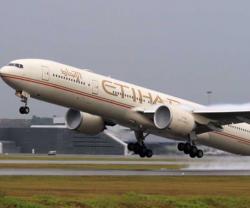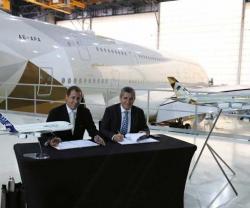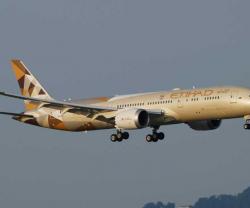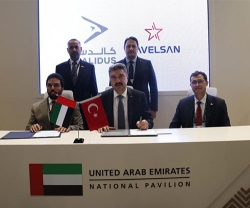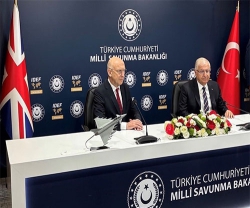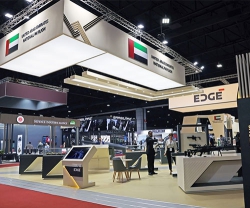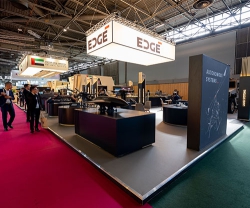Etihad Airways, the national airline of the UAE, announced its strongest annual financial results to date, with a net profit of $103 million ($73 million in 2014) on total revenues of $9.02 billion ($7.55 billion in 2014).
The performance, which marked the airline’s fifth consecutive year of net profitability, also saw earnings before interest and tax (EBIT) of $259 million, and earnings before interest, tax, depreciation, amortization and rentals (EBITDAR) of $1.4 billion, representing 16% of total revenues.
James Hogan (photo), Etihad Airways President and Chief Executive Officer, said: “Our mandate is to build a sustainably profitable airline. A fifth year of net profits, with our best annual financial performance to date, shows that we are delivering against that goal.”
“Our profitability clearly demonstrates the success of our business strategy, based on organic growth boosted by our partnerships. As well as operating profitability, we are building enterprise value across the airline and its many additional business streams,” he added
Etihad Airways’ financial statements are audited by Deloitte and are in accordance with International Financial Reporting Standards (IFRS).
Etihad Airways carried a total of 17.6 million passengers in 2015, an increase of 18.9% year-on-year.
In total, the airline operated 97,400 flights covering 467 million km. The average network-wide seat load factor was 79.4% for 2015, compared with 79.2% in 2014.
Six new destinations were added to Etihad Airways’ global network - Kolkata, Madrid, Hong Kong, Entebbe, Edinburgh and Dar es Salaam - and capacity increased on 16 existing routes with bigger aircraft, more frequency and improved seat occupancy.
Etihad Airways’ fleet increased by 11 aircraft to a total of 121 at year end. With an average age of 5.8 years, Etihad Airways’ fleet is one of the youngest and most environmentally friendly in the industry. The additions included four A380-800 and four Boeing 787-9 Dreamliner aircraft, while further leased capacity was also added.
The A380 was rolled out on the Sydney and New York routes, and inducted on a second daily flight to London Heathrow, while the 787 began commercial operations between Abu Dhabi and Zurich, Brisbane, Washington DC and Singapore.
The airline’s partnership strategy delivered 5 million passengers and $1.4 billion in direct revenues, as well as significant cost synergies.
Etihad Regional was the latest addition to Etihad Airways’ equity partner network, which also includes airberlin, Air Seychelles, Jet Airways, Air Serbia, Alitalia and Virgin Australia. Etihad Airways’ stake in the latter increased to 25.1% in 2015. Combined, the equity partners comprise the seventh largest global grouping of airlines, together flying more than 100 million guests worldwide.
The strategy has contributed to a large increase in sales across Etihad Airways’ global network, delivering revenues of US$ 1.4 billion - an increase of 22.1% on 2014 figures - and more than five million passengers onto Etihad Airways’ flights. In addition, the airline and its equity partners have been able to identify and develop significant business synergies and cost savings.
In 2014, Etihad Airways was instrumental in securing a $700 million financing transaction to fund expansion for the airline, its subsidiary Etihad Airport Services and five of its seven airline equity partners within Etihad Airways Partners (EAP).
Growth continued across group’s business streams, including cargo, MRO, catering and ground handling, and frequent flier program.
Cargo freight and mail volumes rose 4% to 591,000 tonnes, making it one of the world’s most successful air freight operations.

